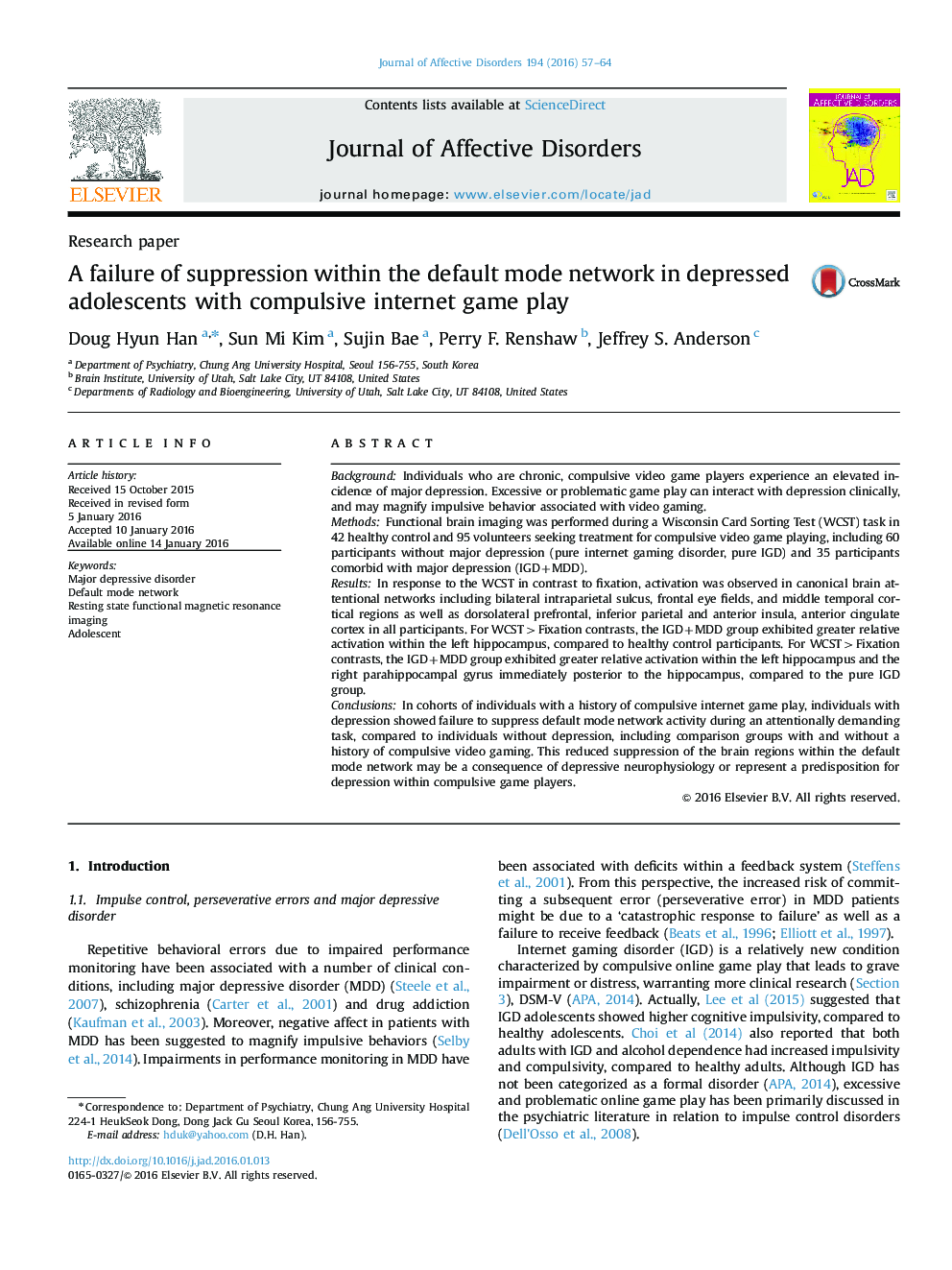| Article ID | Journal | Published Year | Pages | File Type |
|---|---|---|---|---|
| 4185855 | Journal of Affective Disorders | 2016 | 8 Pages |
•Depressed IGD patients showed higher perseverative errors than pure IGD patients.•Depressed IGD group demonstrated a different activity pattern, compared to the pure IGD patients.•Depressed IGD patients had a failure of suppression within default mode network.
BackgroundIndividuals who are chronic, compulsive video game players experience an elevated incidence of major depression. Excessive or problematic game play can interact with depression clinically, and may magnify impulsive behavior associated with video gaming.MethodsFunctional brain imaging was performed during a Wisconsin Card Sorting Test (WCST) task in 42 healthy control and 95 volunteers seeking treatment for compulsive video game playing, including 60 participants without major depression (pure internet gaming disorder, pure IGD) and 35 participants comorbid with major depression (IGD+MDD).ResultsIn response to the WCST in contrast to fixation, activation was observed in canonical brain attentional networks including bilateral intraparietal sulcus, frontal eye fields, and middle temporal cortical regions as well as dorsolateral prefrontal, inferior parietal and anterior insula, anterior cingulate cortex in all participants. For WCST>Fixation contrasts, the IGD+MDD group exhibited greater relative activation within the left hippocampus, compared to healthy control participants. For WCST>Fixation contrasts, the IGD+MDD group exhibited greater relative activation within the left hippocampus and the right parahippocampal gyrus immediately posterior to the hippocampus, compared to the pure IGD group.ConclusionsIn cohorts of individuals with a history of compulsive internet game play, individuals with depression showed failure to suppress default mode network activity during an attentionally demanding task, compared to individuals without depression, including comparison groups with and without a history of compulsive video gaming. This reduced suppression of the brain regions within the default mode network may be a consequence of depressive neurophysiology or represent a predisposition for depression within compulsive game players.
